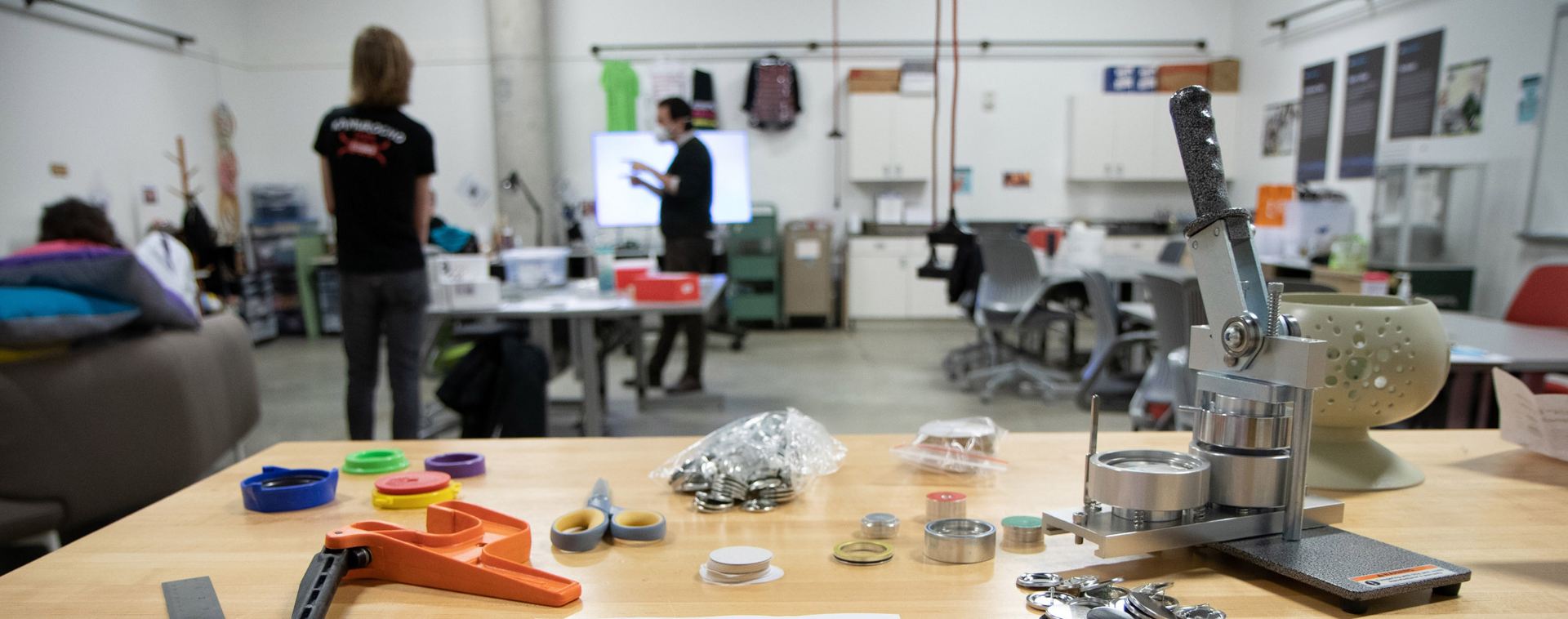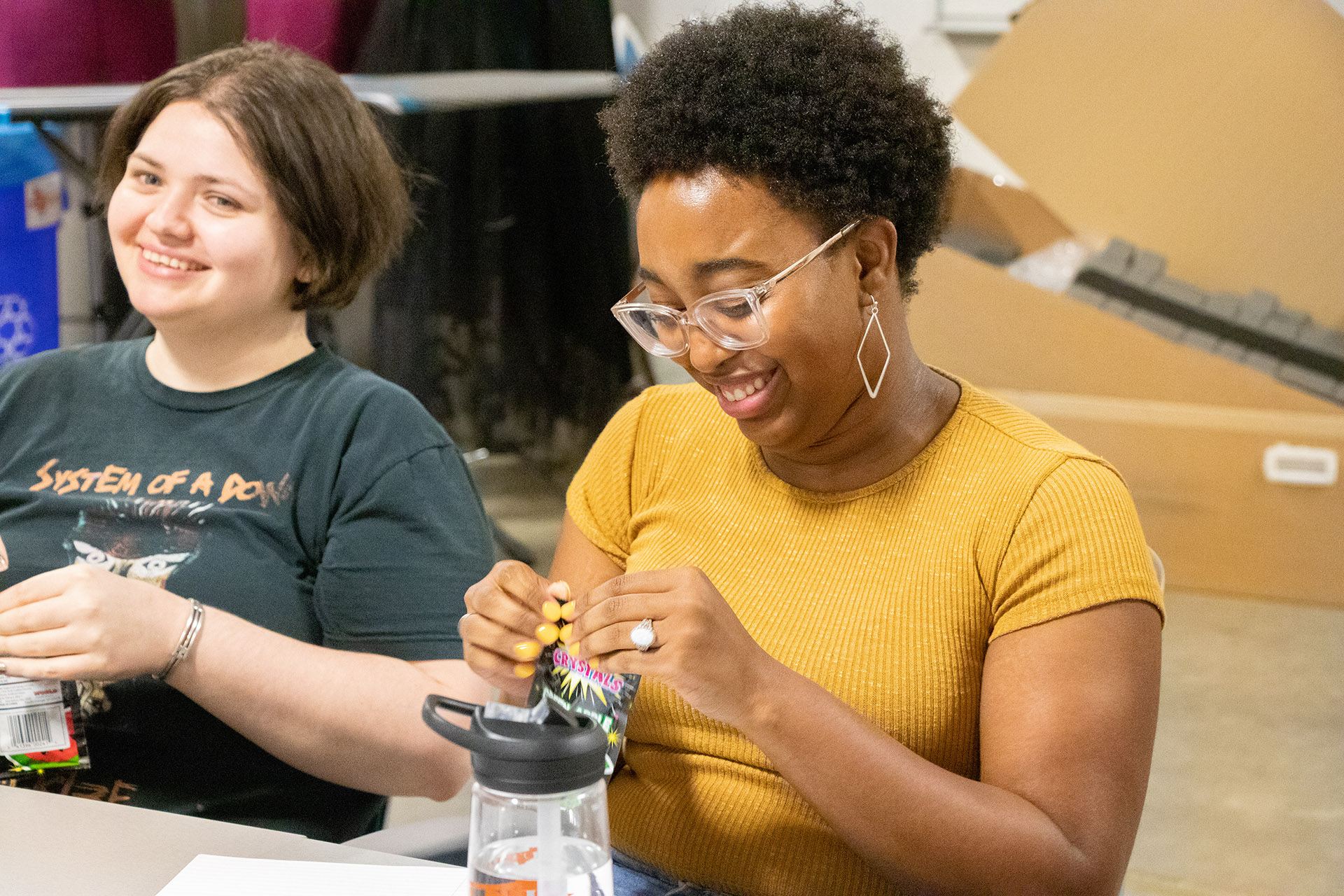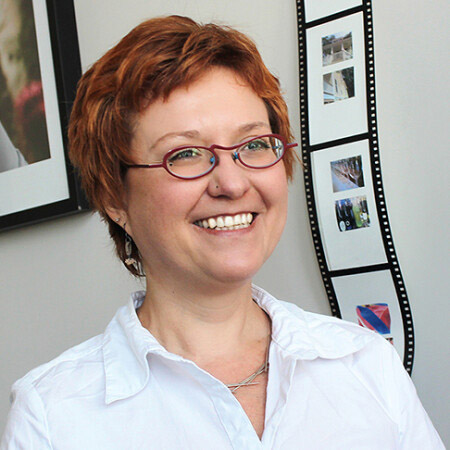
Critical Media Studies
About Critical Media Studies
Critical media studies explore how to analyze and think critically about the power of the media and how its influence shapes race, gender, sexuality, socioeconomic status, citizenship, and other social differences.
The BA in ATEC with Critical Media Studies (CMS) concentration investigates how media and communication technologies intersect with public thought and social relations. Students explore how we use technologies to make the world more just and equitable. Undergraduates begin their study in the BA in ATEC and can select a concentration or explore all the ATEC generalist degree plan has to offer.
The MA in ATEC Emerging Media Studies pathway begins with core approaches and methods. Studies then move to topics that include surveillance studies, global media studies, critical making, game studies, and more.
The Doctor of Philosophy (PhD) in ATEC trains students in academic disciplines, and scholarly and creative research within a vibrant lab and studio practice that bridges theory and practice.
Careers
Content creator, grant writer, journalist, law professor, social justice advocate, social media specialist, UX designer
Undergraduate Programs
Undergraduate Scholarships & Awards
- The Greater Texas Foundation – Tech Titans Removing Educational Barriers Scholarship
- The Marjorie Duckworth Endowment Award
- The Anthony (Tony) Cross Memorial Student Support Fund
Graduate Programs
Graduate Scholarships & Awards
Classes
To obtain specific information about classes at The University of Texas at Dallas, visit the UT Dallas Coursebook, or for more general information, the UT Dallas Catalog.
Program Highlights
All undergraduates begin their study in the general degree plan to receive a BA in Arts, Technology, and Emerging Communication with a curriculum based in the foundations of computer animation, game studies, UX/UI design, motion graphics, digital fabrication, and media histories. Beginning their third year of study, students may elect to continue the general degree plan or select a concentration in Animation and Games, Critical Media Studies, or Emerging Media Arts.
Critical Media Studies investigates how media and communication technologies intersect with public thought and social relations. CMS explores how we can engage technologies to transform the world into a more just and equitable one. CMS students combine theoretical explorations and research with media production and critical making. Our graduates make a difference working in the fields of digital communications, human resources, nonprofit management, radio technical direction, product design, social media management, and UX design.
The coursework for the BA in ATEC concentration in Critical Media Studies and the MA in ATEC with Emerging Media Studies can be combined with a broad range of electives to prepare students for careers in fields such as media law and policy; social justice and advocacy work; investigative research and journalism; broadcasting; social media and public relations; teaching, cultural administration, content creation, and graduate school, among others.
Students choosing to further their education beyond a Bachelor’s degree may do so in one of our ATEC graduate programs. The MA in ATEC offers advanced studies in digital media studies, interactive media, and computer-based arts that emphasize the fusion of creative with critical thinking and theory with practice. The MFA in ATEC, with pathways in Animation or Creative Practice, offers training in emerging artistic practices through the creative use and critical investigation of technology and artistic practices. And the PhD in ATEC trains students in academic disciplines and research traditions related to technology and media.

Faculty
ATEC Faculty include world-renowned artists, scholars, and creative practitioners. Our professors publish with the nation’s leading academic presses, work with top animation studios, hold patents in design, and are recognized as pioneers by peers in their field. Faculty in CMS have expertise in disability studies, media theory, queer media, maker culture, critical play, education, global media, race and ethnicity, eco media, and popular culture.
Research Labs and Creative Practice Studios
We believe if you can imagine it, we can make it. Our lab and studio culture blends art, technology, design, engineering, science, and the humanities to create an incubative environment rich with possibilities. Collaboration is the heart of the Bass School. Learn how faculty, students, art-based research, and creative practice are connected.
Learn about Bass School Research Labs and creative practice studios.
Contact Information

Heidi Rae Cooley
Associate Professor and Area Head
Phone: 972-883-7569
Email: Heidi.Cooley@utdallas.edu
Office: ATC 2.505
Bass School of Arts, Humanities, and Technology
The University of Texas at Dallas, JO31
800 W. Campbell Road
Richardson, TX 75080-3021
Phone: 972-883-2759 or 972-883-2980
Advising
Undergraduate Advising: ahtUGadvising@utdallas.edu
Graduate Advising: ahtGRadvising@utdallas.edu